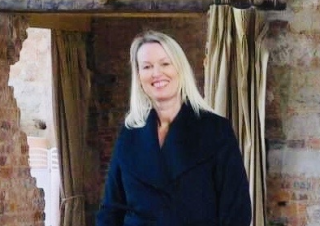Girlings Solicitors and Girlings Personal Injury Claims are celebrating the #First100 years of the first equal opportunities legislation to enter the statute book, which has particular significance for the legal sector. We asked Clare Milne about her experiences.
Q1 What made you want to enter the legal profession?
My Grandfather suggested that I had the right personality and attributes to become a lawyer. As a consequence he took me at the age of 15 to watch a criminal trial at Manchester Crown Court. I really enjoyed the analytical process, and that prompted me to pursue a career in the legal profession which I have never regretted.
Q2 What was your first role in the legal profession?
My first role was as a trainee solicitor with a very busy Manchester practice dealing with all aspects of high street practice but with a particular focus on personal injury and civil litigation.
Q3 What is your specialist area and why did you choose this?
My specialist area is clinical negligence. I fell into clinical negligence by accident. I took over a case from a partner in the firm. He didn’t have time to deal with it and this turned out to be a very complex and high value clinical negligence case with interesting points of law which ended up settling for three quarters of a million and was reported in The Times Law Reports. After that I knew this was the area of law I wanted to specialise in, I enjoy the variety and challenges that clinical negligence can offer. You never know what area of medicine you could be dealing with on a day to day basis. You get the opportunity to not only achieve justice for your client, but also to make a difference to future medical safeguarding practices, to ensure that the same scenario doesn’t happen again to someone else. Focusing on patient safety is paramount to my own goals and those of my team at Girlings.
Q4 A story which illustrates how things have changed in law firms during your career?
I recall that when I first started as a trainee solicitor I had several clients who thought that I wasn’t a lawyer and wanted to know when the lawyer was coming in to speak to them because they were so unused to having a female solicitor. I am happy to say that things have changed over the last 20 years in that there are now more female solicitors entering the profession than ever before and indeed last year for the first time there are now more women on the roll than there are men. I have also noticed that there has been an increase in women becoming Judges, although I still think there is a long way to go in that regard.
Q5 Who inspires you and why?
Christabel Pankhurst inspires me. She obtained a law degree from the University of Manchester, and received honours on her LL.B. exam but because she was a woman she was not allowed to practice law. I myself also studied at Manchester University and I would often pass the house she lived in which is now a museum. She fought for the passing of the Sex Disqualification (Removal) Act. She was a tenacious and defiant woman, taking after her mother, Emmeline Pankhurst, who was a political activist and organizer of the suffragette movement.
Q6 What advice would you give to young females who wish to follow a career in the legal industry?
It is hard work but it is worth it. No other profession gives you such a variety and such a sense of satisfaction than the law.
Q7 What is your proudest achievement and why?
My proudest achievement is building the clinical negligence team from scratch as a single mother raising two children. The Clinical Negligence team , who are currently all female, although we now have a male member joining the team, are going strong and not only are we in the Legal 500 this year, we also have The Law Society Clinical Negligence Accreditation and also we have achieved AvMA panel membership. (AvMA is a charity fighting for the victims of medical accidents and the promotion of patient safety). We ae now a panel member of AvMA because we are seen as a firm that promotes patient safety on behalf of patients in the UK. I think our success comes from investing in our staff, and allowing flexibility for a work life balance. I was lucky enough to be given flexibility when I worked for Girlings, and I wish to pass on the same considerations to my staff.
Q8 How do you maintain your work/life balance?
I am very lucky to work for a firm that does support the life/work balance in that I am a single parent and have brought up two children over the last 10 years. In order to achieve that life/work balance I work 4 days a week and have done for several years, and I am very fortunate that I work for a firm that allows me to maintain my family commitments in equal measure to satisfy work commitments.
